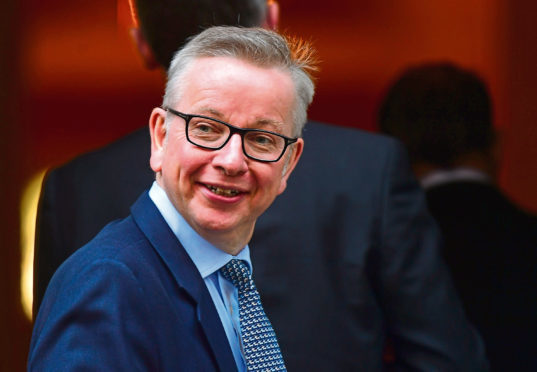Farmers and producers will have to foot the bill for additional paperwork required to export animal products to the EU in the event of a no-deal Brexit.
UK Environment Secretary Michael Gove has revealed that export health certificates (EHCs) would be necessary if no agreement is reached, and confirmed the financial burden would fall on the shoulders of exporters.
He did not say how much certification would cost, but Defra later clarified this would be determined by each vet.
It also confirmed EHCs could be carried out on the day of export.
NFU Scotland president Andrew McCornick said the news represented another reason why a no-deal Brexit would be “undeniably detrimental” to the Scottish agricultural industry.
He added: “No deal would result in the imposition of tariffs overnight, and could make key trade routes impossible for at least six months – and that is only if we are successful in gaining third country status.
“On top of health certificate issues, changes to border restriction will also mean additional border checks for fresh produce, which will create an immediate problem with the perishable products.
“This will only put further pressure on our ability to trade and it will inevitably be the farmers and crofters who pay the price.”
Liberal Democrat MP Alistair Carmichael also voiced concerns, warning Brexit would take a “difficult job and make it well nigh impossible”.
He said: “We are already seeing the expense and bureaucracy that will hit farmers and crofters wanting to export to the EU post-Brexit.
“Farmers and crofters in the Highlands and Islands already have to overcome barriers of distance and geography in order to compete.”
Mr Gove told a Lords committee: “Assuming we are a listed third country, it will still be the case that for live animal exports there will need to be export health certificates.”
Asked about the escalation in costs he said the government would bear some of these, but added: “It is the case that if I as an exporter am required to pay a vet for EHCs that will be an additional cost, yes.”
